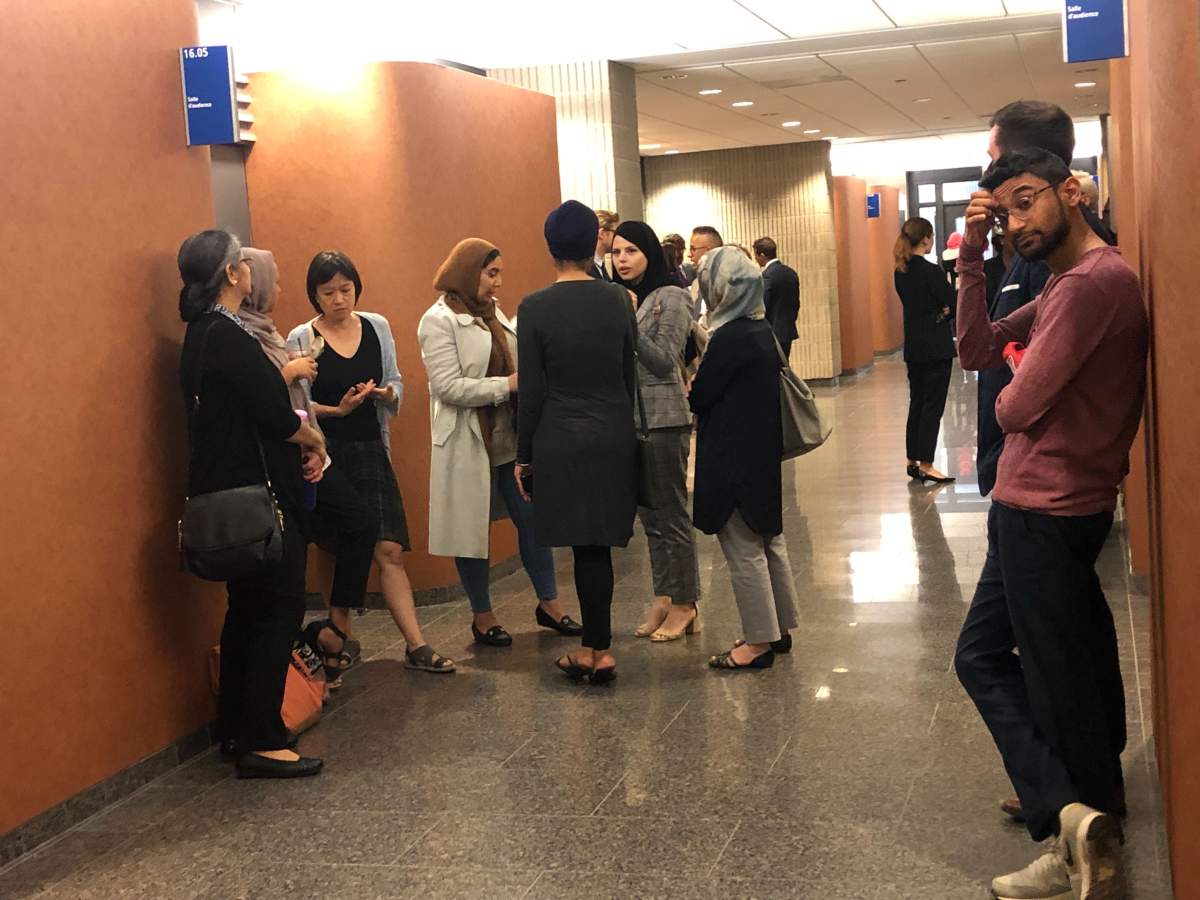A challenge against Quebec’s religious symbols bill was heard by the province’s Superior Court Judge Michel Yergeau on Tuesday.

Less than 24 hours after Bill 21 became law last June, a national Muslim organization and several civil liberties advocates launched the court challenge.
READ MORE: UN experts ‘concerned,’ want answers about Quebec religious symbols bill
The National Council of Canadian Muslims and the Canadian Civil Liberties Association (CCLA) argue that the Constitution of Canada is bigger than the Canadian Charter of Rights and Freedoms and therein sets the rules that apply to public institutions.
“Prohibiting certain symbols is not state neutrality, it’s favouring non-religion,” lawyer Catherine McKenzie argued in court Tuesday.
The court challenge insists the act violates numerous constitutional rules, including the fact that public institutions are supposed to be open to everyone.
WATCH (April 16, 2019): Lionel Perez rejects Quebec’s religious symbols bill

At the time the challenge was launched, Immigration Minister Simon Jolin-Barrette, who tabled the bill, told reporters he is not worried because the legislation invokes the notwithstanding clause of the Canadian Constitution.

Get breaking National news
READ MORE: Quebec religious symbols bill to be challenged in court
The challenge argues Bill 21 resembles criminal legislation — which is beyond provincial jurisdiction — and also violates the “basic requirements of the rule of law” since the wording “religious symbols” is too vague to enforce.
“I don’t understand how this is inclusive and how this is for the betterment of Quebecers because I’m a Quebecer, and it’s not for my betterment,” Amrit Kaur said last month as the challenge was submitted. She just graduated with a teaching degree.
“I was celebrating in the morning, then I came home and it just broke my heart.”
Kaur continued: “The fact that this was done with the notwithstanding clause and at 10 p.m. really shows that this law is unjust. Who is the state to tell me what I can put or not put on my body? That’s my choice, my human right.”
WATCH (April 6, 2019): Quebec immigration minister defends secularism bill

According to the Quebec Community Groups Network (QCGN), the law could have long-term ramifications.
READ MORE: Data suggests Anglophone support for Bill 21 lower than CAQ says — QCGN
“It’s just a mess that they didn’t need to impose upon us and one we’re going to have to figure out over the next several years,” said Geoffrey Chambers, the organization’s president, in June.
The Coalition Avenir Québec (CAQ) government’s controversial secularism bill, titled An Act Respecting the Laicity of the State, prohibits public-sector employees in positions of authority from wearing religious symbols at work.
WATCH: Quebec students studying to be teachers, police officers most affected by Bill 21

The CAQ government used its majority to push Bill 21 through with a vote of 73-35 after invoking closure and ending the debate.
The law affects teachers, judges, police officers, prison guards, Crown prosecutors and other public servants in what the government considers to be positions of authority.
Judge Yergeau is expected to make his decision within the next 10 days.



Comments
Want to discuss? Please read our Commenting Policy first.